2 min read
Gospel-Centered from the Start
“Let us hold unswervingly to the hope we profess, for He Who promised is faithful…Jesus Christ is the same yesterday, today, and forever.” (Hebrews...
9 min read
Lynn Yount, UGM Volunteer
:
April 8, 2016
If you’re a guest at UGM’s men’s shelter, you go to chapel every night. If you’re not, you may not even know there is a chapel service at the shelter every night of the year – except Super Bowl Sunday.
Ron Molina is UGM’s chaplain, responsible for coordinating chapel providers and providing spiritual care for people whose lives have been touched at chapel. If you’re interested in miracles, talk to Ron. He sees them every day.
Ron recently talked to me about how God rescued him from ending up in a gang, what led him to this position at UGM and why it’s so important that our guests go to chapel.
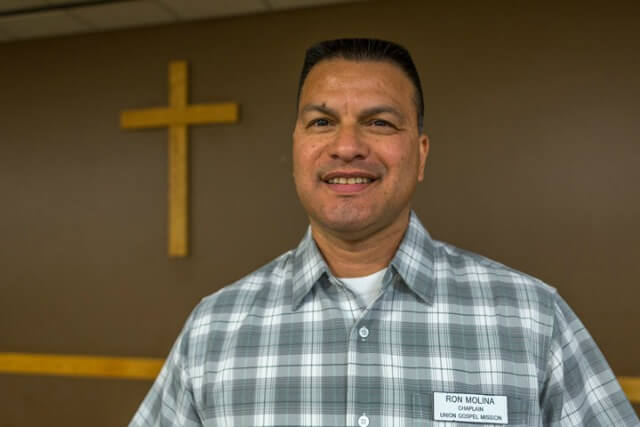
Lynn: Tell us about yourself.
Ron: I'm originally from Southern California and grew up there. Hispanic family background, grew up in a little barrio neighborhood in Montclair, which is about 35 miles east from Los Angeles. I was actually born in a car right outside Pomona Valley Hospital. Didn't quite make it, so they had to come out and I was delivered there in a '65 Chevy Impala.
I have one older sister. A pretty close family, so to speak. Not much depth, a lot of dysfunction, but we kind of navigated through life in our own way. My father passed away when I was 8 years old. That was a pretty traumatic event for me. So my mom pretty well raised me along with my uncles and aunts and everybody else that kind of pitched in. I had a great grandmother who was kind of an anchor for me.
Lynn: What brought you into Spokane?
Ron: At that time I had a really solid Christian friend. And he kind of pulled me away from the gang lifestyle as a young kid and in junior high. In the area where we grew up it was kind of like a way of life, what you move into. He was instrumental in kind of bringing me out of that, helping me get some sort of different trajectory in my life. He started taking me to youth group.
I met my wife in youth group; her dad was a pastor in Ontario, California, at the Church of the Nazarene. I was the kid that they tried to keep away from the pastor's daughter; I didn't find that out ’til later. Throughout high school we dated. She moved away up here to Spokane when her dad took a pastorate up here. That's what moved me up here; we got married.
Her sister and my brother-in-law were running a Nazarene camp. They were directors of a camp on Deer Lake. They asked us if we'd come up and help them.
Lynn: Do you have any kids?
Ron: Five kids. We've had people ask us, "Are they all yours? Have you had different marriages?" No, they're all ours. And one granddaughter.
Lynn: What connected you with UGM?
Ron: What connected me with UGM when we first moved up here was Jim Carson, who was chapel coordinator here at the time. He had been here 15 or 16 years. I came and spoke with him and asked about doing chapel, maybe preaching, doing something. He gave me the opportunity to do that. I was on a chapel rotation at that time, and that was pretty scary. I was trying to get myself involved in ministry, and when I got here to do chapel, I was like, "Wow, I don't think I know what I'm doing." But it was OK. Jim was very helping and encouraging and kind of took me under his wing a little bit. So that was my first encounter with Union Gospel Mission, as a chapel provider.
And of course I was involved in ministry up at the camp, as the assistant director up there. Also a youth pastor, associate pastor, was involved in those kinds of things.
The camp closed down; they had to restructure some things, and we were released from that. It was a pretty traumatic situation for our family, having to relocate. All we ever knew was ministry at the camp; we raised our kids there. And so my wife and I in about a month found employment. She went to work at Nordstrom, and I went to work at a tire shop, delivering tires. I was there for almost four years. She started in the shoe department and then moved into being the store administrator. I thought, "I don't know where my life is really ever going to end up again in ministry or not."
I happened to be looking at Craigslist and I saw that UGM chapel coordinator position was on Craigslist. My first thought was "Is Jim alive, is he OK?" So I called and talked to Jim, and he said, "Yeah, I'm fine, I'm just retiring." He kind of encouraged me to fill the application out, and so I did. I had an interview with Randy Altmeyer and Sonny Westbrook, and we talked. I was actually working for the tire shop and I was also pastoring a church, and I ended up taking that part-time position. I was actually doing all three of those for about six months. July 30, 2011, was when I got hired at the Mission.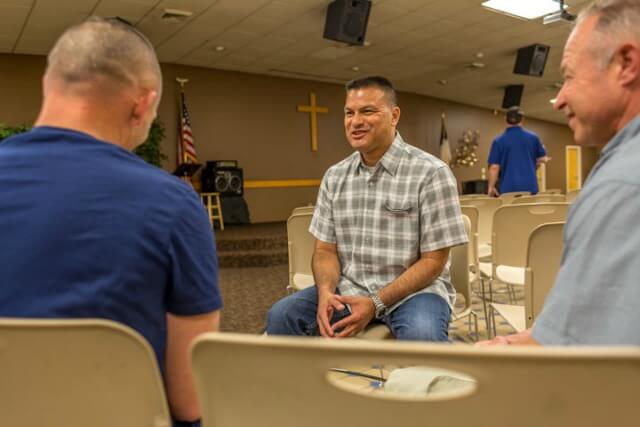
I didn't know anything about the Mission, really. I started to immerse myself in the ministry. I was doing that and watching the whole aspect of rescue, recovery and restoration unfold. And so, in that time I remember sitting in self-evals and different things and going, "Wow, this is some serious work here. This is radical stuff." And it was a little uncomfortable.
Randy was getting ready to retire, and our old rescue director Tim Braach took Randy's spot, Randy moved to rescue chaplain, and they asked me if I wanted to come on as the day room manager. And I said absolutely.
So I did; I took that position. And that really was the catalyst to a big change in my own life. When I took that position, God did something beyond anything I could ever believe. That began the journey of my own addiction coming to light. It was my own rescue, recovery and restoration here. I look at everything that happened in my life at camp and in ministry and everything, and God brought me here at the Mission, a safe, healing environment, to get my life on track, to rescue my marriage and restore it. It's been 4 1/2 years now since that crisis and traumatic event in my life.
I decided if I'm going to do this, I'm going to be absolutely honest about everything. I moved forward with it. It was hard, it has been hard, but four years later, God has done amazing work in my life and in our marriage. It's amazing.
Lynn: Did you go through a lot of the same processes that the guys in recovery do here?
Ron: I did on the side. Even now, I tell the men, "You guys came in the east door; I came in the west door." Same thing. It was that close; I was at the point when I was going to end my life. I thought, "I'm done. I can't do this. I can't face this. This is way too big for me and my family." I didn't think I was going to be able to go through it. And God gave me a passage of truth that said, "Trust. Trust in me with all of your strength. Don't lean on your own wisdom. In all your ways acknowledge me, and I will make your path straight." (from Proverbs 3:5-6) Everything that I knew about preaching and teaching and ministry and everything came to a simple little boiling head of "trust me."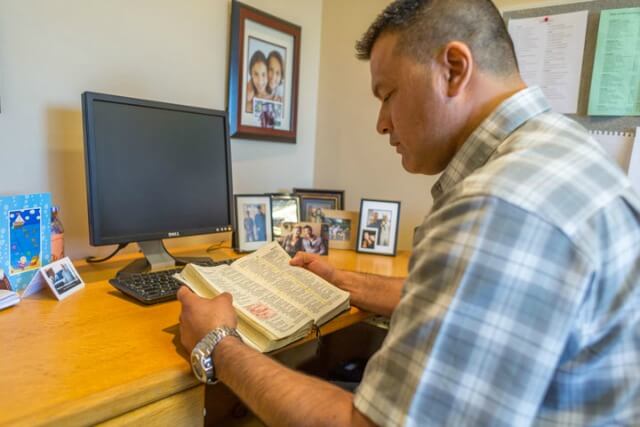
And so our family is stronger, our marriage is something it never probably could have been aside from that. So I'm thankful and grateful for this place. And Randy, who with his wife Shelley were the ones who were right there when this happened, have been a great support and peace to our marriage and our life.
He said, "You might want to maybe move into that (chaplain) role." They asked me if I'd be willing to do it, and my wife and I got together, we prayed, and felt that it was a piece that God had restored in our lives, and so here we are. She actually works at the Mission now. She works at the Thrift Store; she's the manager at the downtown store.
Lynn: I love it. Go from Nordstrom to the UGM Thrift Store.
Ron: Yeah. Ten years she was at Nordstrom, and then she moved into that role. She is just a jewel. She's an amazing woman.
Lynn: So, shifting over into what you actually do, is there any such thing as a typical day of work for you?
Ron: I'm thankful for our rescue director, Gabe, who is very structured in that way and helps us to plan and set aims for our day. It's not that we haven't done it, but he holds us accountable to doing that, which is good for all of us.
Chapel is my main responsibility, and so I would say that what I do is use the parable of the soils as a framework for cultivating and jumping on the opportunities when men respond and have an encounter with God in chapel. We have chapel every night, and we have amazing chapel providers who have different gifts, strengths and abilities, and different unique ways they minister to the men relationally. They encourage them, they teach them, they evangelize and they build relationships with them. One of my primary duties is to facilitate that.
Once that happens, cultivate whatever it is: A faith commitment the first time, or recommitting their life, or just trying to find their way. I kind of look at it that way: I'm trying to help men find their way spiritually. So I'm not case managing; we're doing soul care. That's primarily what I do on a daily basis; I evaluate what happened in chapel and I try to connect with the men and use our amazing volunteers that are doing Bible studies and counseling and just try to plug them into those areas where they can continue in their spiritual journeys.
So I am able to make connections and follow up in that way. It really is not intruding, but it's soft and gentle: "Where can we help you?" We have simple resources we give the men. I'm amazed how God uses those simple little things to help them in their journey. 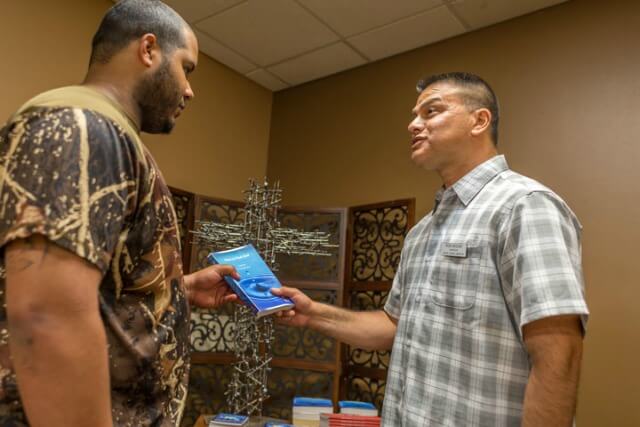
Lynn: What kind of resources are you talking about?
Ron: We have a pamphlet called Living in Christ, put out by Billy Graham. Our volunteer pastor-counselor Ken Carpenter does the Bible study on Fridays and also does pastoral care. He uses this material, so I'll give this to a guy and remind him that Bible study is on Friday or Wednesday, and then I have a place to connect with them and say "What did you think of that?" We give Bibles to men that really want to pursue and move more into discipleship mode.
I guess what I see even at a smaller level is rescue, recovery and restoration going on sometimes just from day one with a guy. They might not make the newsletter, might not finish the program, but they're in the journey of recovery.
Lynn: Is there a schedule where the same people do chapel every Monday, every Tuesday, that sort of thing?
Ron: There is. Some of them come once a month. Most of them come every other month. But I've got 44 different church groups or various groups of people that contribute to chapel. So some of them have been coming for 30 years, 15 years, 20 years, 5 years. We've got some new, fresh groups that are coming in, too. We have some of our chapel providers encouraging their churches to create more groups to come and do chapel.
Lynn: Is there ever trouble to have enough, or does it just seem to be provided for every night?
Ron: It's actually a little hard to fit people in from time to time.
Lynn: Have you talked with some of them about why they do what they do, like what their heart is for chapel?
Ron: It's never selfish. Sometimes you wonder, you know, when I came into chapel I didn't know what I was doing. I was like, I'm going to practice my preaching. That failed really fast. But I think the common denominator is they love to bring hope to the men. They connect when they share their own brokenness, their own story. And they genuinely want to be there and minister to the men and love them and care for them.
It's beautiful, and it's so different. We could have a group of Mennonites and then we could have an African Pentecostal group from one day to the other, and you know what? The men are so appreciative of it. They sit, they listen, they're respectful. I always say this when we pray for chapel: God has carved out this hour from eternity, and he knows exactly who is going to be there, and he always shows up. From eternity, he's carved that little hour out to allow the men to experience him and have an encounter with him. It happens every single night.
Except for Super Bowl Sunday. 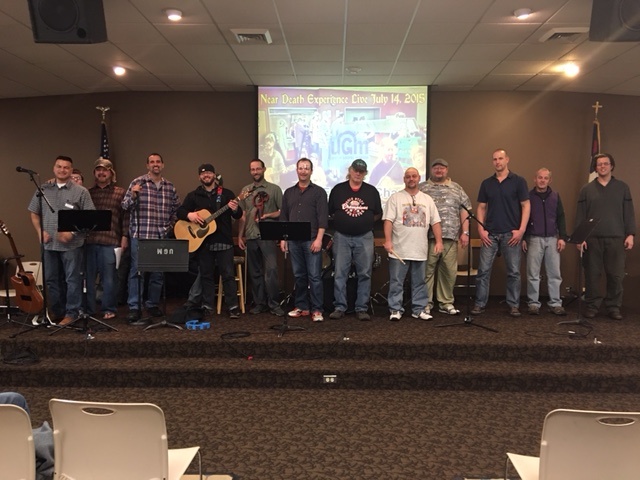
Lynn: Really? That's funny that that's the one day there's no chapel. Is there anything else that might surprise people about what you do in your work?
Ron: Something people don't necessarily know is that I try to facilitate lighthearted activities. And so we did a UGM's Got Talent and the guys came out of the woodwork. We've got this group that is kind of like David Letterman and Paul Shaffer and the band. These guys are kind of like that. They all have this common near-death experience that they have had, and each story is pretty powerful, but when they get up there, it's a little different but they really connect with the guys. They can get a little goofy. So I had them facilitate the event and they absolutely loved it. We had 10 guys that came out, did poetry, played the violin, played the piano, classical guitar, a guy told a story, a guy told some jokes. We handed out some prizes. And the men really connected. It really worked with them, bringing the message: we're "his workmanship, created in Christ Jesus to do good works." And we just really applauded the gifts and talents that the men had. It was amazing, it really was. And the guys had fun.
One of them, it was his second night here. His name was Eric, and he is actually a former pastor struggling with addiction, but he's got these poems that he's memorized. And they're awesome; some were over my head, but he recited like three of them and he was our hands-down winner for the night. He's actually getting ready to go into our recovery program. When you talk with him, you realize that that was the piece to help him engage and become part of the community and be comfortable here. And now God has used that goofy activity to get him on a journey. I'm not saying it's the main thing, but it was part of what cultivated that.
Read part 2 of this interview.
Take a deeper dive into the connection between the gospel and the poor. Download the free e-book below.

2 min read
“Let us hold unswervingly to the hope we profess, for He Who promised is faithful…Jesus Christ is the same yesterday, today, and forever.” (Hebrews...

9 min read
To celebrate 75 years of serving the Inland Northwest, we are spending the year remembering our history and the faithfulness that built us and...

2 min read
In 2026, Union Gospel Mission Inland Northwest is approaching our 75th Anniversary! This is a milestone that invites gratitude and reflection, and...
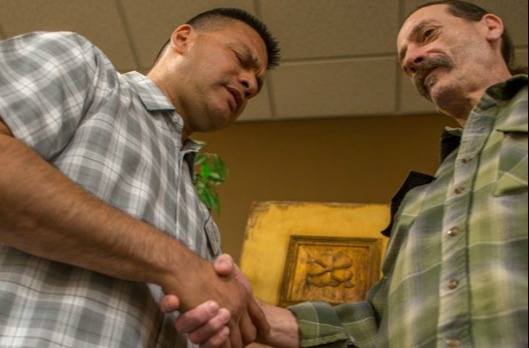
In Part 2 of an interview with UGM Chaplain Ron Molina, he talks about lives that God has changed at UGM, why daily chapel services are important and...
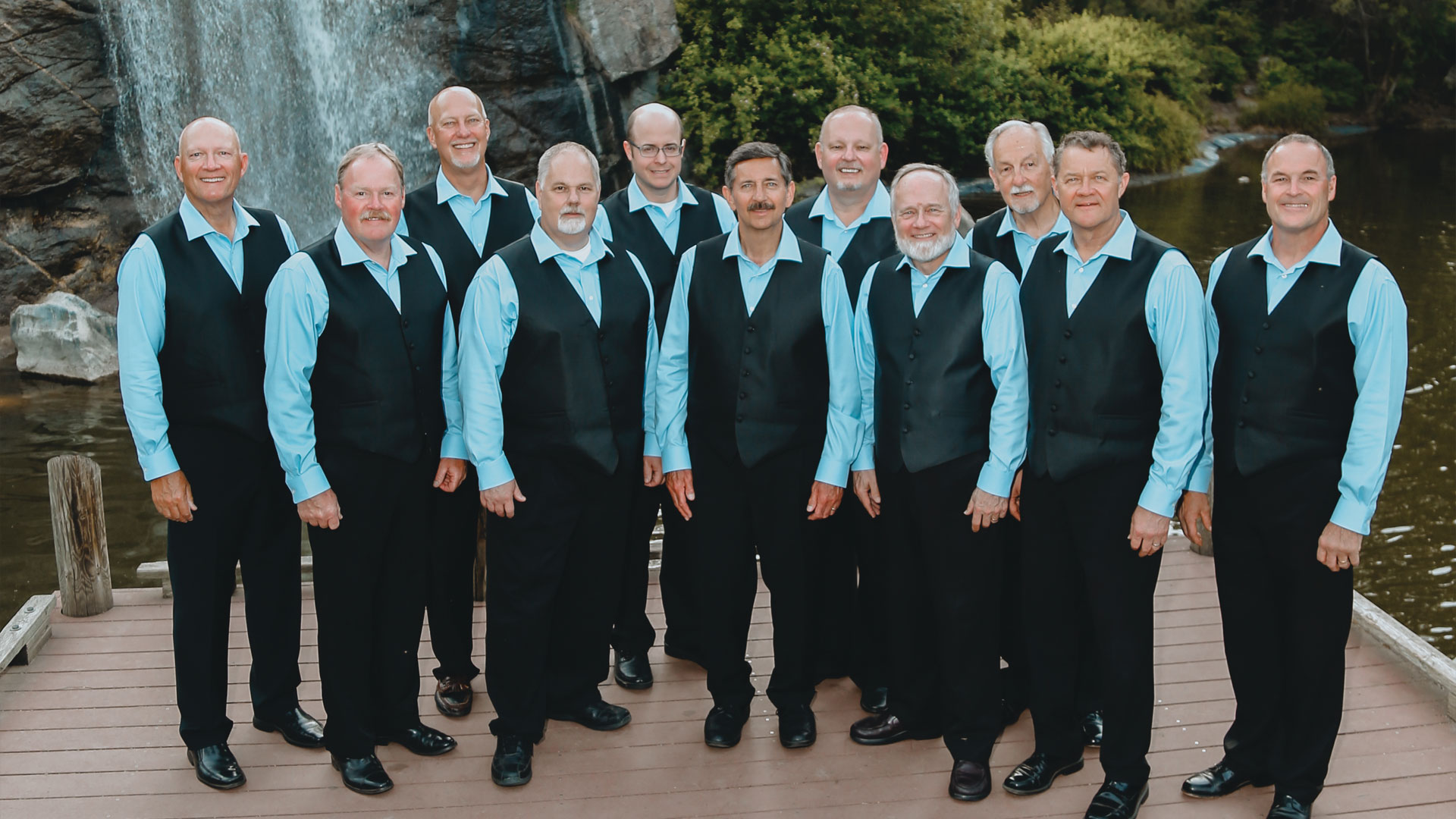
“We tell people we’re not here to perform; we’re here to worship,” says His Song president Joel DeVries. His Song is a men’s gospel singing group...
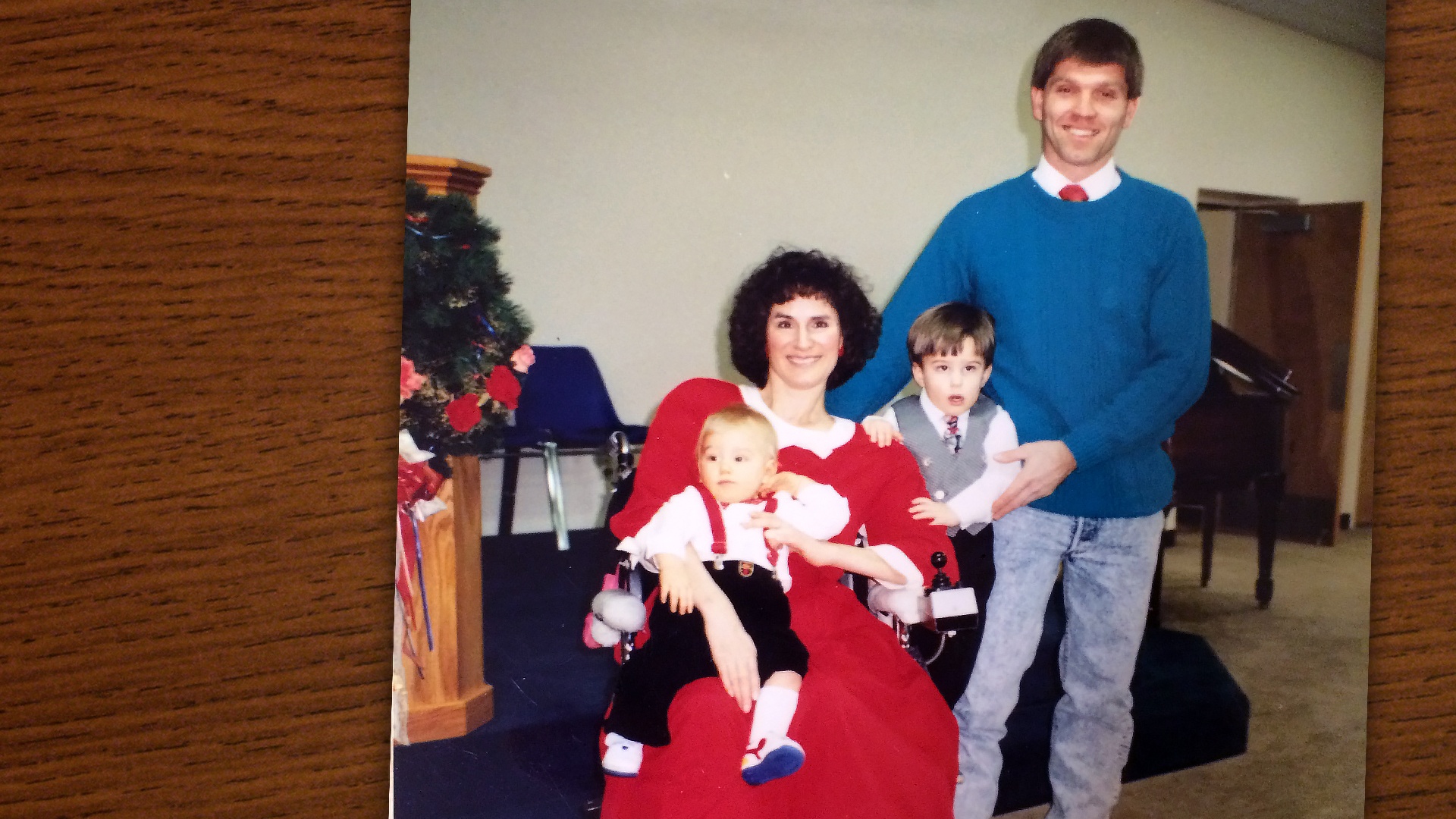
UGM Men's Shelter Chaplain Randy Altmeyer has served at UGM in several capacities over the span of 30 years. He is now retiring to embark on a new...